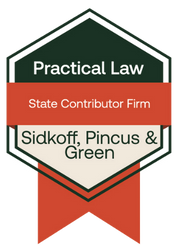Employees Cannot Bypass Title VII

The Third Circuit is the most recent court to hold that employees cannot pursue Section 1983 claims for claims that also arise under Title VII of the Civil Rights Act. Under Section 1983, a Plaintiff can proceed directly to court without going through the pre-lawsuit requirements of Title VII and the Americans with Disability Act (ADA).
The Third Circuit is the most recent of eight circuits to have considered whether employees could bypass Title VII and bring a claim against their employer for discrimination under Section 1983 instead. Each of the eight circuits (including the Third Circuit) that have weighed in has concluded that plaintiff-employees cannot bypass Title VII. This was a case of first impression in the Third Circuit.
In this case, the plaintiff, Cheryl Williams, filed a lawsuit against her former employer, the Pennsylvania Human Relations Commission (PHRC), and two of her former supervisor’s in their individual capacities as “state actors.” She alleged that she was discriminated against on the basis of her race and disability. Williams exhausted all her administrative remedies prior to filing suit. Because there is no individual liability provision under either Title VII or the Americans with Disabilities Act (ADA), she relied solely upon Section 1983 to attach her two supervisors in the suit.
The Western District of Pennsylvania granted Summary Judgment to her former employer, PHRC, finding that Title VII and the ADA do not create an individually enforceable right under Section 1983. On appeal to the Third Circuit, the Court affirmed the entry of Summary Judgment in favor of PHRC. The Court explained that Section 1983 contains no administrative scheme like Title VII and the ADA, which include filing deadlines and limited liability for individual state actors.
According to the Court, by allowing Title VII or ADA claims to be filed as Section 1983 claims would thwart the carefully crafted administrative scheme enacted by Congress, and throw a backdoor open to our federal courts when the front door has been purposefully fortified. In other words, plaintiffs cannot bypass Title VII to avoid administrative remedies under other provisions.
In short, plaintiffs who seek to recover for workplace discrimination must abide by the full administrative process outlined in Title VII and the ADA.
Philadelphia Employment Lawyers at Sidkoff, Pincus & Green P.C. Represent Clients in Actions Filed Under Title VII and the ADA
To learn more about how the Philadelphia employment lawyers at Sidkoff, Pincus & Green can help, call us today at 215-574-0600 or contact us online. We represent clients in all types of business litigation matters and employment related matters.



















